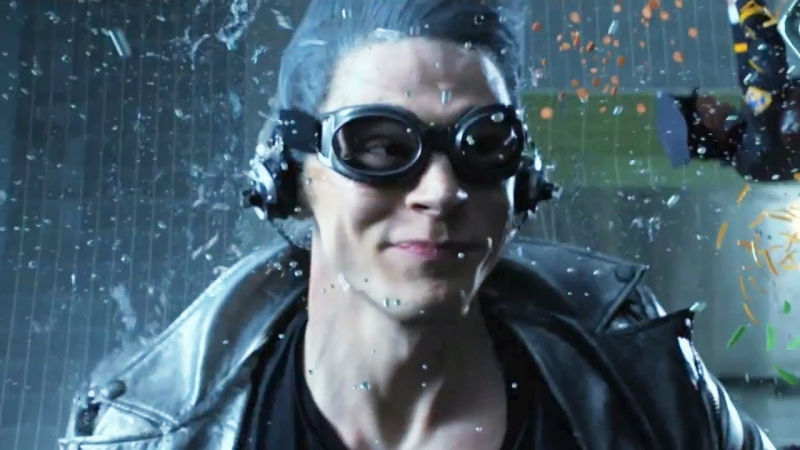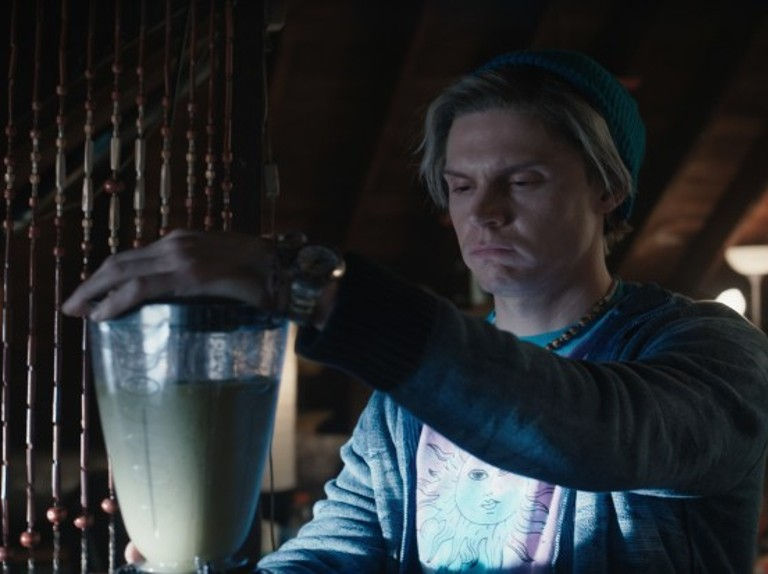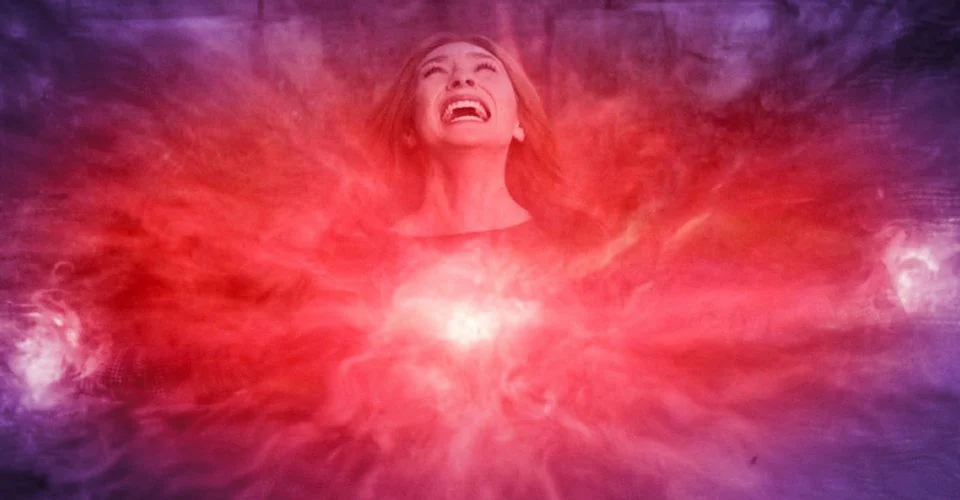WandaVision series review
- Jordan Croft

- Mar 16, 2021
- 7 min read

Marvel Studios first Disney+ live action series WandaVision has wrapped up after 8 weeks of excitement and intrigue. The bizarre series was well received and showed that the MCU is willing to explore the weirder side to their fictional universe. This is something which will keep Kevin Fiege’s dream alive and keep the fans engaged as they won’t be watching the same Marvel show or film every time.
In terms of WandaVision there was much to love. With Paul Bettany (Vision) and Elizabeth Olsen (Wanda Maximoff) getting the spotlight there talent was on full display and the supporting cast led by Kathryn Hahn (Agatha Harkness) only enhanced the show. The star filled cast also delivered all the crazy ideas that the show included which is why the series succeed. There was rarely a time in WandaVision where you felt and idea didn’t work.
Love Letter to Sitcoms:

Easily the most outlandish idea for the series was to let the events of each episode to play out as different sitcoms through the decades. Six in total, each decade gave us a different perspective to the show which helped build the tension of the show. It was an easy spot to know that something big was going to happen after the final Modern Family style sitcom episode, each decade before this felt like they was always building to the big reveal.
Moreover, if we took out the Marvel side of the story the sitcoms work as simple fun episodes to watch, especially the first 3 episodes which at times felt separate from the MCU.
Progressing through the decades of sitcoms also felt like a love letter to each decade of TV. While this was a nice touch, moving through the decades also allowed the show to act as a downward spiral of Wanda’s control and grief. Each change of decade represented Wanda trying to change what was happening, so when she runs out everything culminates in the finale. This also acted as a good pacing for the series which meant viewers were not frustrated by lack of action because they knew patience was needed to allow the story to develop.

Within each sitcom there was also an element of horror. This is where a link to the show Bewitched ties in. However, the horror within each sitcom played an important role within the series and were the key moments in the earlier episodes to help us grasp a basic understanding on the broken reality Westview was. Nobody knew what was truly going on in the town until the reveal of “Agatha All Along”, so each horror aspect which we had in every episode helped piece together the puzzle. This is something a movie cannot achieve, but for longer form storytelling it is easier to put together. Within WandaVision the pieces were put together excellently and allowed for fan speculation to go crazy, even if it got out of hand.
A story of grief:

WandaVision’s true story was about Wanda’s struggle with her grief. Looking back on the show now with the knowledge of what happens there is a newfound appreciation to the story being told. There is purity to how no matter how crazy things get within Westview the focus still remains on Wanda and her grief. Director Matt Shakman spoke before the finale and mentioned how he hoped fans would receive the story that has been told throughout which was about Wanda’s grief. I have to admit on first viewing like all fans I was hoping for a bigger reveal in the finale. This is where the re-watch ability of WandaVision comes through as on 2nd viewing a newfound appreciation for Wanda’s story is found.
To parallel the story of Wanda’s grief was the story of Wanda and her family. With the birth of Tommy and Billy in episode 3 the later episodes focused on Wanda’s love for her family and how she would do anything to keep it together. This was fantastic foreshadowing for the finale when Wanda had to sacrifice her family to set Westview free. Therefore the family dynamic that was built up in the series just added more layers to Wanda’s character. Wanda has the pre-existing grief of Vision, Pietro (Aaron Taylor-Johnson) and her parents, now she can add Billy and Tommy onto the list. As her children Wanda will definitely feel more pain thinking about how she let them down which is why the story of Wanda’s grief doesn’t seem to be at its final conclusion within the MCU.

For WandaVision there was still a satisfying conclusion for Wanda as she lets go. The post-credit scene is where we see the continuation of the story for Wanda, but instead of using her chaos magic powers to create a false reality, she now looks set to use the Darkhold to somehow bring back Tommy and Billy. No matter how she uses the Darkhold it will likely cause problems which Dr. Strange in the Multiverse of Madness will likely deal with.
Another aspect to WandaVision which helped provide context to what was happening inside the hex was the arrival of S.W.O.R.D. The sub plot of Haywood (Josh Stamberg) keeping secrets and Monica’s (Teyonah Paris) grief added another layer to the story. Usually sub plots can take away from the main story. However, Monica’s grief complemented Wanda’s and provided an alternative view towards grief which helped us understand what grief does to people. Also, although falling flat in the finale, Haywood’s story about bringing Vision back online was well told and added more mystery to the series as it was being built up. This means that both subplots never took away from the main story and just added to the grief and mystery that were commonplace throughout the series.

When talking about S.W.O.R.D. we cannot move on without showing some love to two characters which helped provide comic relief during the show. Darcy Lewis (Kat Dennings) and Jimmy Woo (Randall Park) were so popular throughout the show many fans are calling for spin-offs focussing on the pair tackling independent adventures. This just goes to show how well these characters were portrayed and once again shows that the MCU does comedy characters unlike nobody else.
Did fan theories ruin the show?

There is a very simple answer to this question and the answer is no. As we have mentioned WandaVision was a mystery show and we went a long time without any concrete answers. This was always going to lead to speculation and theories.
This is then where you have to tamper expectations and rather than watch for a big reveal, just sit back and watch as a fan. This is where the MCU thrives, it thrives on the fans. So when looking back on WandaVision we need to ignore what we were thinking about going into the show and rather focus on what we saw.

Every fan is entitled to watch the show however they want because that is the joy of films and TV. This is why nobody can say theories ruined the show. If you got drawn into theories like many of us did, I encourage re-watching the show, because it will tell a different story to you rather than the story everybody was searching for on the 1st viewing.
Did the finale deliver?

Without question the build to the WandaVision finale was the best part of the show due to it feeling like a journey. When the destination arrived did the finale match up the expectations that we had built for it?
In my opinion the finale did live up to expectations and the main story got the perfect ending. Wanda’s story of her grief and how she became the Scarlet Witch was beautifully told and is hard to point out any errors. Therefore when we are looking back on the show, we will be focused on this story which delivered across the whole series. Moreover, the story within WandaVision came to a satisfying conclusion but the door was still left open to continue exploring Wanda’s grief in the future. As such I cannot fault the finale in how it delivered a conclusion to the Westview anomaly while keeping the story moving with the post-credit scene.

However, they are parts of the finale that fell flat. The sub plots of Haywood and Monica didn’t get enough love and just seemed to end without a final battle between the pair. We still have to acknowledge this is a sub plot and although quite disappointing didn’t take away from the final battle between Agatha and Wanda. Its effect is not dampening on the show like if the story of Wanda’s grief was a let-down. As such the S.W.O.R.D. story is just ok.

The most controversial aspect of the finale was Evan Peters’ Pietro revealed as Ralph Bohner. Many fans had theorised that Evan Peters’ Pietro may be the same as the X-Men franchises Quicksilver due to Peters portraying both. Obviously this annoyed fans as the joke that was made was a bit of a slap in the face. However, I view this in the same as I do with S.W.O.R.D.’s finale. This wasn’t the main focal point of the series and wasn’t a big enough turn off to make fans turn on the finale. It’s hard to have an opinion on this reveal because Evan Peters was never the focal point so I was never fully invested in who he was. Also, I never thought he was coming from the Multiverse because it hadn’t been established that Wanda could do something like that. As such I have a feeling of nothingness towards the Evan Peters reveal so for me this didn’t pose any problems to the show.
Verdict:

I don’t think anyone can question the success WandaVision had. Being Marvel Studios first Disney+ live action show it was always going to be hard to deliver, but in as Marvel Studios tend to do they pulled it out of the bag. The build throughout the decades was fantastic and the best part about the show. Then when asked to give a satisfying conclusion, the show did. The finale wasn’t anything too insane like some of the MCU movies have been. Being more grounded than people expected is why WandaVision isn’t on the level of the top tier Marvel properties, but it is definitely close behind.
In terms of character development, it’s hard to argue WandaVision isn’t on the top level within the MCU. Wanda’s growth was fantastic and has positioned her as one of the stand-out characters for phase 4 and beyond.
Score: 8/10
Images:
Marvel Studios
Marvel Comics
Disney+






Comentarios